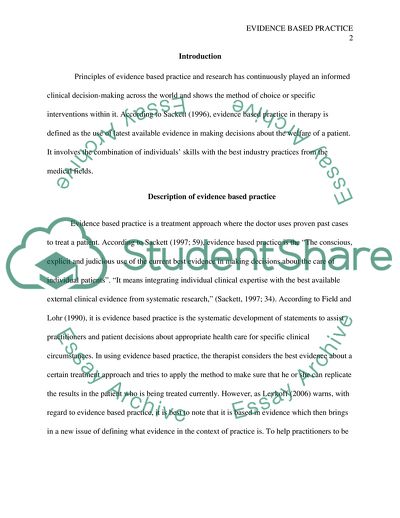Cite this document
(Evidence-Based Practice in Behavior Activation for the Treatment of Depression Term Paper Example | Topics and Well Written Essays - 2750 words, n.d.)
Evidence-Based Practice in Behavior Activation for the Treatment of Depression Term Paper Example | Topics and Well Written Essays - 2750 words. https://studentshare.org/psychology/1844070-evidence-based-practice-in-behavior-activation-for-the-treatment-of-depression-in-cognitive-behavior-therapy
Evidence-Based Practice in Behavior Activation for the Treatment of Depression Term Paper Example | Topics and Well Written Essays - 2750 words. https://studentshare.org/psychology/1844070-evidence-based-practice-in-behavior-activation-for-the-treatment-of-depression-in-cognitive-behavior-therapy
(Evidence-Based Practice in Behavior Activation for the Treatment of Depression Term Paper Example | Topics and Well Written Essays - 2750 Words)
Evidence-Based Practice in Behavior Activation for the Treatment of Depression Term Paper Example | Topics and Well Written Essays - 2750 Words. https://studentshare.org/psychology/1844070-evidence-based-practice-in-behavior-activation-for-the-treatment-of-depression-in-cognitive-behavior-therapy.
Evidence-Based Practice in Behavior Activation for the Treatment of Depression Term Paper Example | Topics and Well Written Essays - 2750 Words. https://studentshare.org/psychology/1844070-evidence-based-practice-in-behavior-activation-for-the-treatment-of-depression-in-cognitive-behavior-therapy.
“Evidence-Based Practice in Behavior Activation for the Treatment of Depression Term Paper Example | Topics and Well Written Essays - 2750 Words”. https://studentshare.org/psychology/1844070-evidence-based-practice-in-behavior-activation-for-the-treatment-of-depression-in-cognitive-behavior-therapy.


